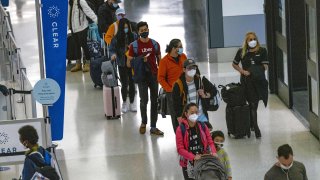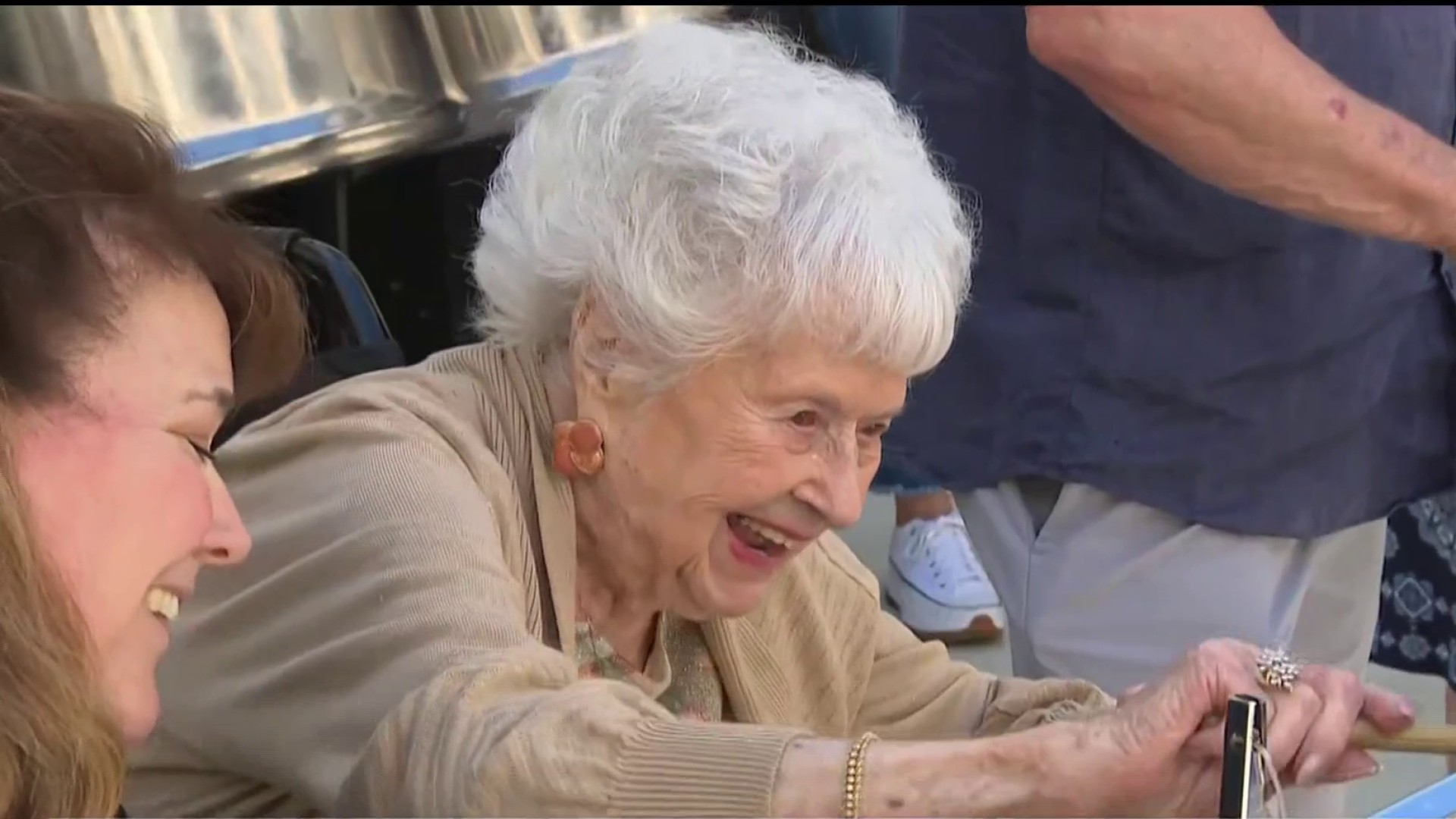
California health officials next week will outline a new approach to dealing with the coronavirus that assumes it's here to stay, Gov. Gavin Newsom said Wednesday, while condemning organized disinformation efforts that limit vaccinations critical to California entering the next stage.
A disease reaches the endemic stage when the virus still exists in a community but becomes manageable as immunity builds.
"We’re looking back at the last two years — what worked, what didn’t, what we’ve all learned on the journey we’ve been on together," Newsom said. That includes reviewing the impact on people and businesses from California's rules, regulations and requirements, he said.
The World Health Organization declared the COVID-19 outbreak a pandemic on March 11, 2020. While still considered a pandemic, health experts have been expecting the coronavirus to eventually become endemic.
Get San Diego local news, weather forecasts, sports and lifestyle stories to your inbox. Sign up for NBC San Diego newsletters.
Newsom imposed the nation's first statewide stay-home order that largely shut down the most populous state's economy in the early months of the pandemic, followed by occupancy, masking and vaccination requirements that California is only now beginning to ease.
The new approach, he said, “allows for the kind of flexibility of thinking that is incumbent upon all of us as it relates to dealing with any endemic, particularly one as stubborn ... as COVID.”
It will still include quarantines, testing of those who don't show symptoms and other precautions, but those safeguards will vary based on what he said are more than a dozen “guideposts and measurements” designed to spot new surges and virus variants.
It also will include a continued emphasis on vaccinations and booster shots that can prevent serious illness, hospitalization and death, he said. About 700,000 Californians got their shots in the last seven days, he said, which is “not insignificant, but it’s not where we want to be.”
“We still have a lot of work to do to convince people that they should still get vaccinated, let alone boosted,” he said.
Nearly 74% of Californians age 5 and up are fully vaccinated and another nearly 9% are partially vaccinated. About 55% have had booster shots.
Another part of the approach will confront not only misinformation about the virus and vaccinations, but what he called “overt disinformation that continues to be perpetuated ... by individuals, organizations, networks in this country that continue to put people’s lives at risk."
Newsom said California health officials will also outline their revised approach to school mask-wearing requirements no later than Monday, after negotiating with school officials and teacher unions. Governors in New Jersey and other states this week moved to ease those mandates.
Newsom spoke after signing a series of bills into law, including one that requires larger companies to give workers up to two weeks of paid time off if they get sick from the coronavirus. The requirement was coupled with billions of dollars in business tax cuts and other assistance approved by state lawmakers on Monday.
Encouraging people to stay home when they are sick through things like paid leave is one of the keys to limiting the spread of an endemic virus, said Dr. Monica Gandhi, a professor of infectious diseases at the University of California, San Francisco.
"I feel like this is utterly the question of the day” as officials worldwide struggle for answers, she said: "What does endemic management look like?"
Health officials could track coronavirus cases by testing wastewater for evidence of disease, she said, with increased genomic analysis if they spot a spike to see if a new variant has surfaced.
State officials could continue recommending vaccinations and more effective masks, particularly for those who are vulnerable. But an endemic approach likely means no more masking or vaccination mandates for entering businesses, schools or entertainment venues, and an increased emphasis on antibody, antiviral and other treatment options for those who cannot or will not be vaccinated.
And Gandhi expects the pandemic will leave a permanent emphasis on improved ventilation systems in buildings and the importance of leaving windows open even in winter.
Coronavirus vaccines are likely to be just one more routine childhood shot, and it will be rare for a child to avoid exposure to COVID-19 by age 5, when symptoms generally are mild, said Dr. Jeffrey Klausner, an epidemiologist at the University of Southern California.
Health officials will mainly direct their emphasis to controlling outbreaks in congested areas, like schools, nursing homes and prisons.
“We’ll be moving to a place where we have vaccines, we have treatments and it will become more normalized into our medical system and will not cause this kind of public health response where people felt society had to be shut down and people had to be required to be distanced or wear masks,” Klausner said.
There will continue to be regional and county variations, as evidenced already in both the San Francisco Bay Area and Southern California. That will inevitably cause confusion and increase pressure on health officials like those in Los Angeles County who said they may keep masking requirements through April, he said.
“We’ll live with the availability of COVID tests. Where people get a flu test, now they’ll get a COVID test as well. We’ll live with the availability of COVID treatments. We’ll live with people who are at very high risk for severe disease — whether they be older or unvaccinated or immunocompromised — will have to continue to work to protect themselves," Klausner said.
“But I think that the general population, many things will recede into the rearview mirror in terms of the day-to-day,” he said.



